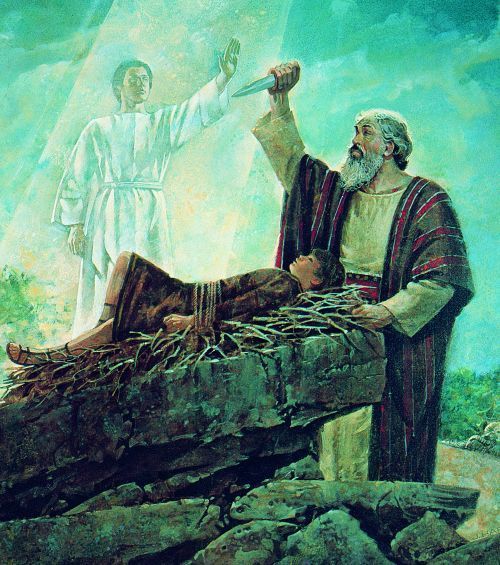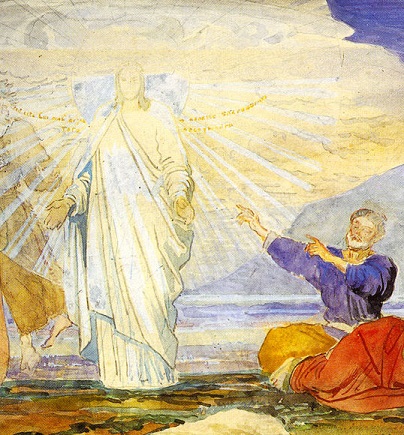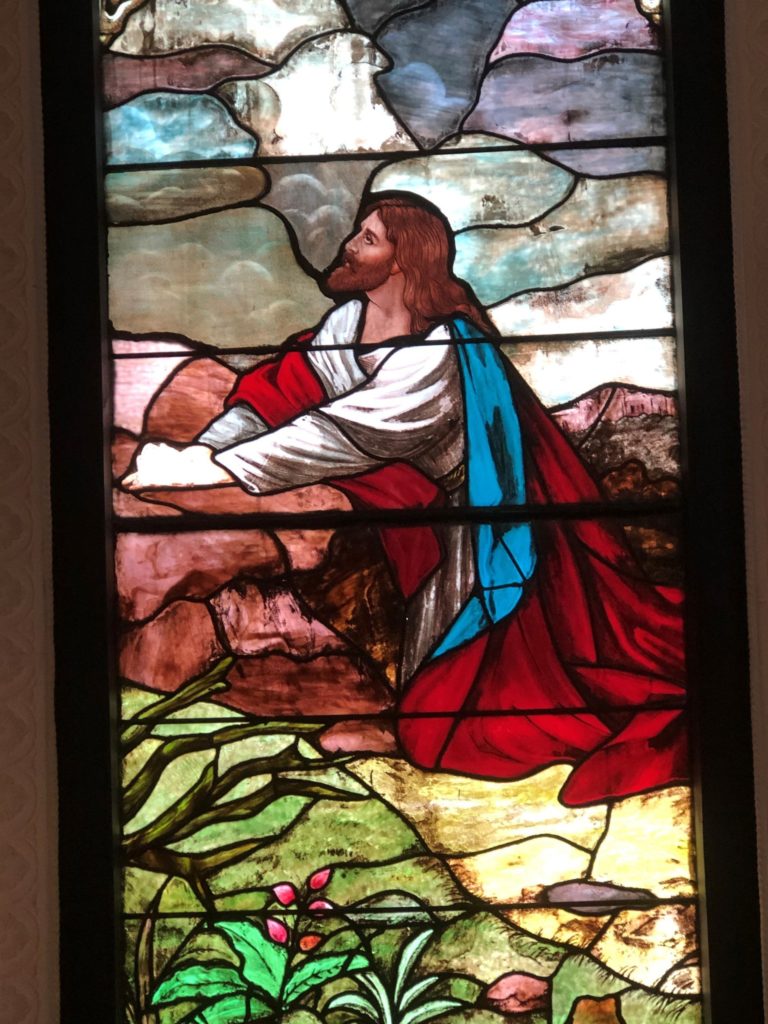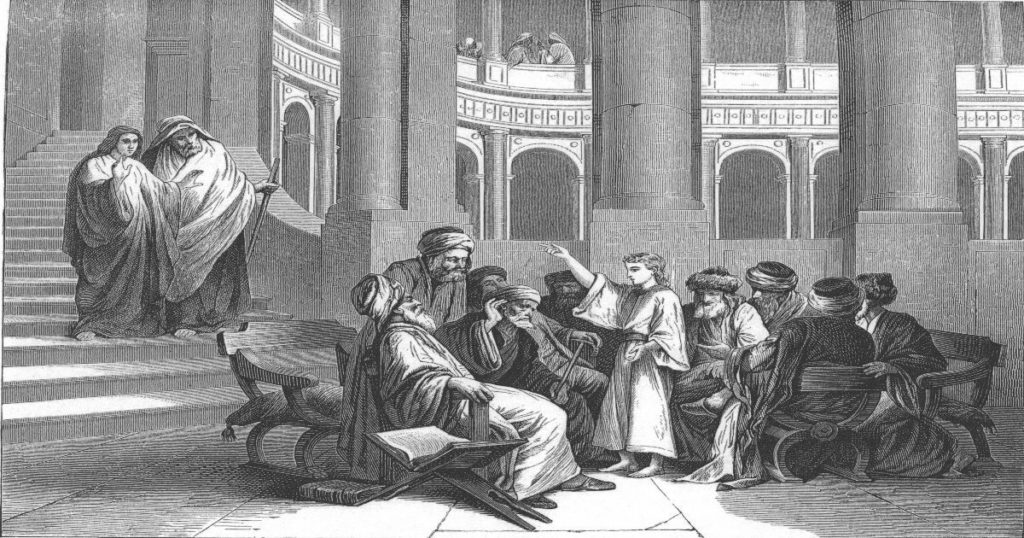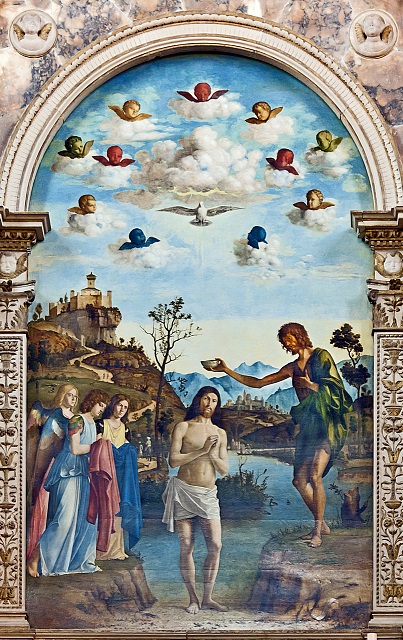Readings: Numbers 21:4–9 | Ephesians 2:1–10 | John 3:14–21
Text: John 3:14-21

“For God so loved the world that He gave His only-begotten Son that whoever believes in Him should not perish but have eternal life.” John 3:16—it’s one of the best loved passages in all of Scripture. It appears everywhere from signs in the background at baseball games to the bottom of soda cups at the Christian-owned In-N-Out Burger chain.[1] Christians love this passage because it is the whole Gospel of Jesus in a nutshell.
But let’s think more deeply about what this verse really means: “God loved the world.” Yes, the same world that built the Tower of Babel to make a name for themselves,[2] the same world that builds temples to demons and worships the creature rather than the Creator,[3] the world which today writes off belief in God as obsolete superstition, and the same world that persecutes Christians because they refuse to acquiesce to the progressive values of the day. God loves the world of people like Charles Manson and Adolf Hitler, Donald Trump and Nancy Pelosi, abortionist Kermit Gosnell and every unborn baby who loses his or her life. God loves the world, despite the evils people commit against each other.
God loves the world, including those who slander the president or governor, complain behind a person’s back, are prone to outbursts of anger and cursing, divorcees, the resentful or greedy, those cheat on their spouse in heart or in fact, and the unforgiving. That’s when it amazes us that God even loved us, though we’re guilty of breaking Hs holy Law, and completely unworthy of His kindness. “God so loved the world”—including you and me—“that He gave His only-begotten Son, that whoever believes in Him should not perish but have eternal life.”

There’s a problem in this world with the word “love.” It’s widely believed that love is purely emotional and self-serving. But this kind of love can’t make it through “for better or for worse, for rich or for poor, in sickness and in health.” No wonder so many marriages end in divorce with this idea of love. At best, it’s not much more than infatuation that doesn’t look much deeper than a handsome face or pretty hair. At worst, love is just a synonym for lust and used as a means to get one’s own way.
Yet even as we condemn the world for being so wayward, we need to take a look in the mirror. We also have this self-serving idea of love in our relationship with God. When we hear that God loves us, we want that to mean God will provide everything our hearts desire, no questions asked. God loves me, so He gives approval and affirmation to our lifestyle. He should be proud of how I’ve lived my life, and He should know that every time I sinned, I was justified in doing it. That’s the kind of love the sinful flesh seeks from God.
But here in the Gospel, God’s Son shows us how much greater the true love of God is. First of all, love is always directed outward, never in on self. Love looks for what the other needs, and then strives with all its might to make that happen. So, when love sees poor, sinful creatures, it must act to rescue them. Love also doesn’t wait for the beloved to ask, but it acts spontaneously and willingly. As the Epistle makes clear, sin hasn’t just made human beings weak; it’s made them dead. Dead people can’t ask for anything, or seek anything in God. “But God, being rich in mercy, because of the great love with which he loved us, 5 even when we were dead in our trespasses, made us alive together with Christ.” (Eph. 2:4-5). Love counts the other’s gain as the highest good and never balks at the cost. Hear the words of the God who loves: “The Son of Man came not be served but to serve, and to give his life as a ransom for many.”[4]

The world’s version of love is deadly, because it’s equated with acceptance of whatever another person chooses. That’s not true! Silence and indifference is more evidence of hatred rather than love. God’s hatred lets the rebellious go their own way: “Therefore God gave them up in the lusts of their hearts to impurity…those who exchanged the truth of God for a lie.”[5] God’s love has not let the rebellious and dying world go its own way, and the very fact He speaks against the sin of man is evidence that He has compassion on us.
This was true in the Old Testament reading from Numbers 21. God was leading and providing for the people He chose for Himself to be His treasured possession.[6] But they got impatient and grumbled against God and Moses, the man God had given them. Then, the Lord sent fiery serpents that bit the people so that they died.
God was not overreacting. The people had fallen into unbelief, and in their unbelief, they had no share in the inheritance He promised to Abraham. To bring it into New Testament wording, if they rejected the gifts of God, they would perish in their sins. And God would not have that. It was the love of God that sent those fiery serpents among the people to wake them up and warn them! When the people cried out that they had sinned, God then commanded Moses to lift up the bronze serpent, “and everyone who is bitten, when he sees it, shall live.”[7] If God had not loved them—if He had hated them, as the people complained—they really would have died in the wilderness, without food and water…or salvation.

This is God’s love at work, which our Lord Jesus reveals in the Gospel. “As Moses lifted up the serpent in the wilderness, so must the Son of Man be lifted up, that whoever believes in him may have eternal life. For in this way[8] God loved the world…” That little word “for” connects the bronze serpent to the cross, and the cross as the emblem and seal of God’s love. This is the manner in which God loves the world: “I am He…I kill and I make alive” [9] He kills the Old Adam, the sinful flesh in us. He disarms and destroys the devil’s work. And then He makes alive through Jesus, the Crucified and Risen One. But it’s all moved by His love for the lost and rebellious people of the world.
The cross demonstrates God’s love for every person—especially you. God’s love might seem strange as it did to the Israelites, but rest assured that His chastisement is meant to bring each of us to the cross. When you consider your life and say that it should have gone or be going a different way, remember God’s love. When you grow impatient with the trials He puts you through and you envy those around you, repent of your unbelief! Repent of worshiping the temporal stuff of this life—be it food or drink, a nice house, a new car, the perfect job, or a dream vacation.

The thing God treasures above all things for you is that you have fellowship with Him, believing in His Son. If you find yourself arguing with Him that He’s mismanaging your circumstances or putting unbearable people in your path, remember anew His eternal plans for you. God is your Almighty Father in heaven, who rules over all and gracious works all things for your good. You, who believe in His Son, have been called according to His good purpose, and He will not fail to save you from destruction and keep you in eternal life. If that means suffering for a time in this vale of tears, so be it. It is God’s good will for you. He is preparing you for much more than broken life in this world; He has a new heavens and new earth stored up for you.
Now we see what love the Father has for every person in the world. It is a selfless, self-giving love, that pours out the life of His Son on the cross, that a world of dying sinners may live. This is the love He has for all people—even the ones we despise. God’s love is not content to see any person perish. He desires that everyone would believe and behold Jesus,[10] lifted up on the cross for them, so that they receive the eternal life prepared in full for them. Amen.

[1] https://pix-media.priceonomics-media.com/blog/807/ScreenShot2014-09-04at3.16.43PM.png
[2] Genesis 11:1-9
[3] Romans 1:19-25
[4] Matthew 20:28
[5] Romans 1:24-25
[6] Deuteronomy 7:6
[7] Numbers 21:8
[8] What is often understood as “God so loved” is not a matter of degree, like God loved the world so much. Rather, it’s indicates the manner in which God demonstrates His love.
[9] Deuteronomy 32:39
[10] 1 Timothy 2:3-4
















